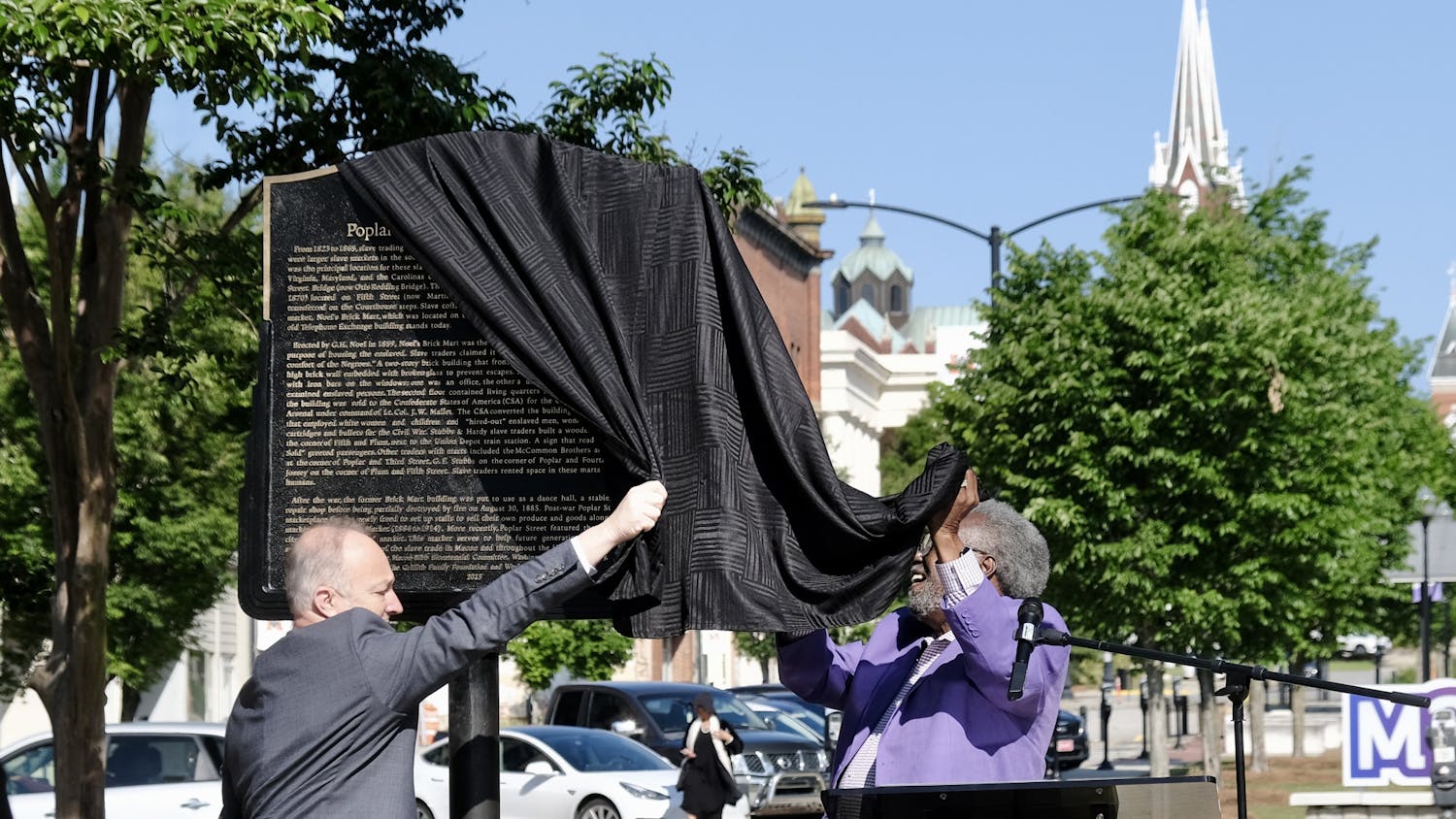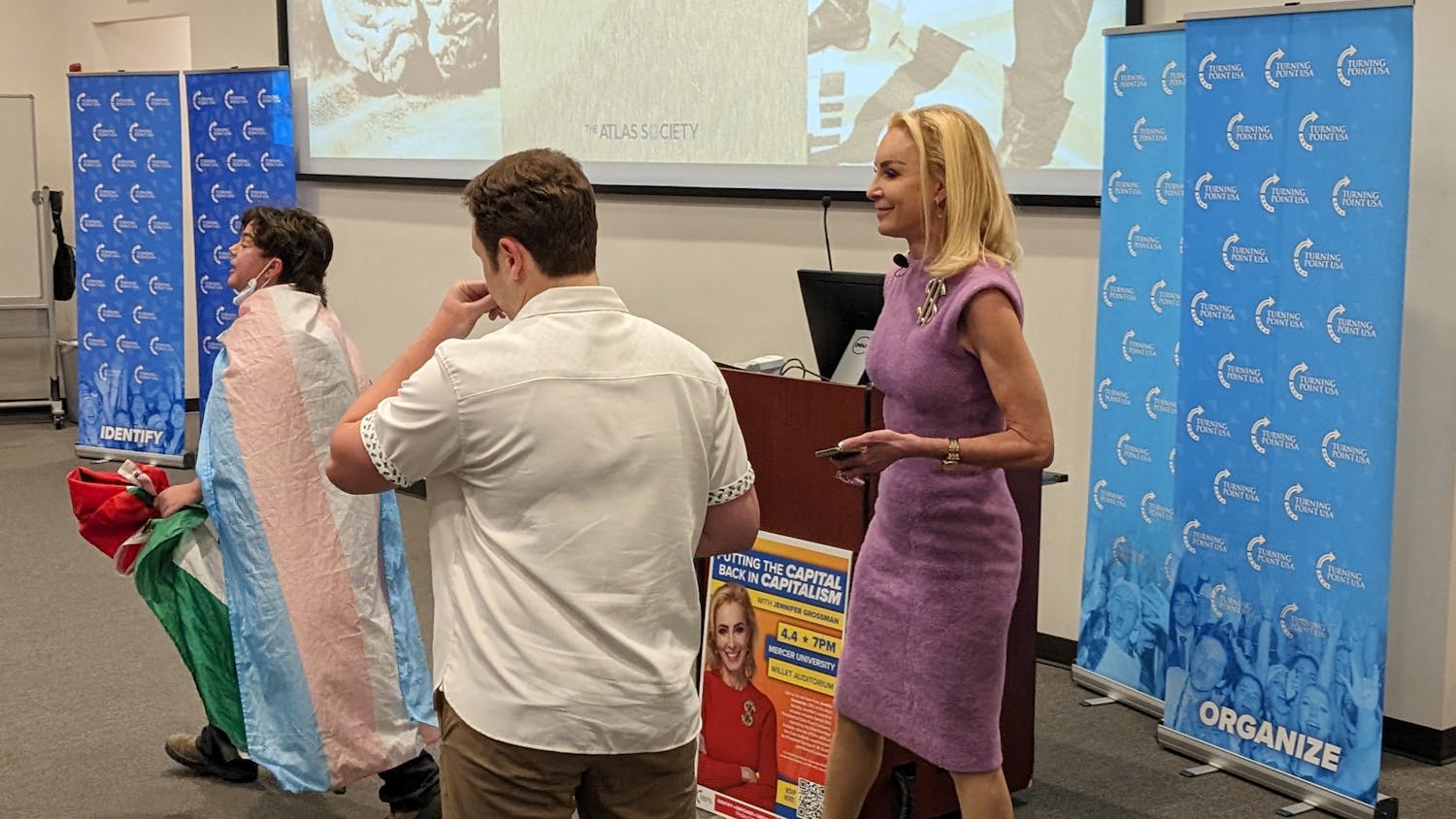At the beginning of World War II, former Mercer University President Spright Dowell said Mercer should strive “to do her full-part for the national defense” and “to study a plan for after war conditions and needs.”
According to Victory Media, a career resource for veterans and their families, Mercer has accomplished that goal.
Victory Media recently named Mercer one of its 2016 Military Friendly Schools for the university’s assistance in providing options for military personnel to continue their education, according to a press release.
“Mercer’s designation as a 2016 Military Friendly School® acknowledges university leadership and its strong, steadfast commitment in support of military-connected students, veterans and their families,” said retired Lt. Col. Scott Mahone, assistant director of center operations at Mercer.
Mercer was also the first institution in Georgia to be named a Purple Heart University for these efforts.
Military involvement is not an uncommon term used throughout the years. In fact, Mercer has been involved with military pursuits all the way back to the Civil War
The War between the States
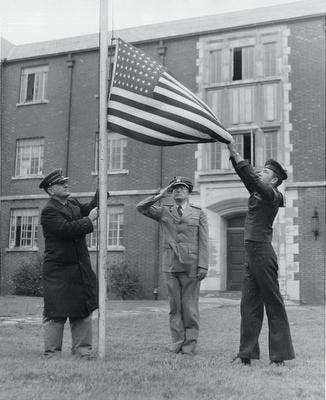
1861: Georgia seceded from the Union. The Georgia Baptist convention endorsed succession and showed the type of support Mercer, its students and its alumni were expected to give to the war effort.
1861-1862: Almost the entire senior class joined the Confederate army.
“Excitement subsequent to the capture of Ft. Sumter affected our students very much: and many of them … left the quiet of college-life for the hardships of camp and the din of war,” said Nathaniel Macon Crawford, former president of Mercer.
1863: Only 12 students were enrolled in Mercer. Nine of the 12 ended up joining the war.
1864: Only 8 students were enrolled due to the war efforts.
1865: The end of the war left Mercer without income, but it kept its doors open and admitted disabled soldiers without charging tuition.
1867: No senior class existed until 1867. Mercer was the only college in Georgia that kept its doors open throughout the Civil War.
The world is at war
August 16, 1918: After the U.S. entered into World War I, Mercer’s trustees “moved and carried that the Government be requested to establish a Students’ Army Training Corps (SATC) at Mercer.”
October 1, 1918: SATC was established at Mercer, and 240 students joined out of the 397 enrolled. All became privates in the Army and had their housing, subsistence, instruction and equipment paid for by the government.
“To those men of Mercer now under colors who have so valiantly and so nobly given their life and service to their country, in defense of liberty and justice and right, and to those Mercer men who may yet give their service to keep ‘Old Glory’ high above reproach,” read the dedication of the Cauldron of 1918, Mercer’s yearbook.
1919: Mercer donated $3,000 to the YMCA for the organization’s work in the United War Work Drive.
The world is at war … again
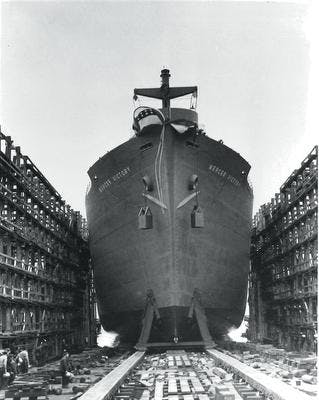
September 3, 1939: World War II began.
December 8, 1941: The United States became involved in World War II.
1942: Mercer’s summer session became a regular quarter with full curriculum, and by 1944, there were 8-week summer terms.
1942-43: Mercer’s enrollment experienced a 12 percent increase.
One-third of the enrolled 486 students were women, and although athletics were suspended, the school had vigorous physical education programs. A thousand Naval cadets were to be trained at Mercer, and two different training programs were initiated on campus.
October 1942: Eighteen Mercerians were Marines, 46 were in the Army, 21 were in the Air Corps and 27 were in the Navy.
March 14, 1945: A ship was named in honor of Mercer. The USS Mercer Victory was a 10,240-ton cargo ship. Mercer donated $300 to the ship library.
“We trust that she may serve as a moving spirit of Mercer University and a bit of floating campus to Mercer men, and an inspiration to all,” said Dr. Thomas Cornwell, a Mercer alumnus, at the launching of the ship.
August 1, 1945: A Veterans’ Administration Guidance Center was set up on campus.
The ‘50s and on
1951-1962: Nearly 400 students were enrolled in ROTC.
January 27, 1951: The Scabbard and Blade honor society was initiated on campus, which replaced the Mercer Military Club.
December 1952: Fifty-two students who received their commission from the Mercer ROTC were on active duty.
1961-1973: Controversy came to campus with the Vietnam War. The Cluster called for a moratorium to discuss the controversy. Seventy-four percent of liberal arts students said they were opposed to U.S. involvement, but only 26 percent said they would participate in peaceful anti-war demonstrations. Movements on campus included protesting at the ROTC Honors Day, a candlelight procession and a request to lower the flag to half-mast after the Kent State deaths, which was approved by Rufus C. Harris, former president of Mercer
“The university protects the fair and reasonable exercise of dissent by students or faculty,” Harris said. “Those associated with Mercer properly represent a wide variety of points of view, and the university fosters the free expression of these attitudes.”
2015: Mercer receives the distinction by Victory Media of being a 2016 Military Friendly School.
The information in the timeline was provided by a five part series from The Cluster in 1983 titled “During The War Years.”
Throwback Thursday: In a time of war
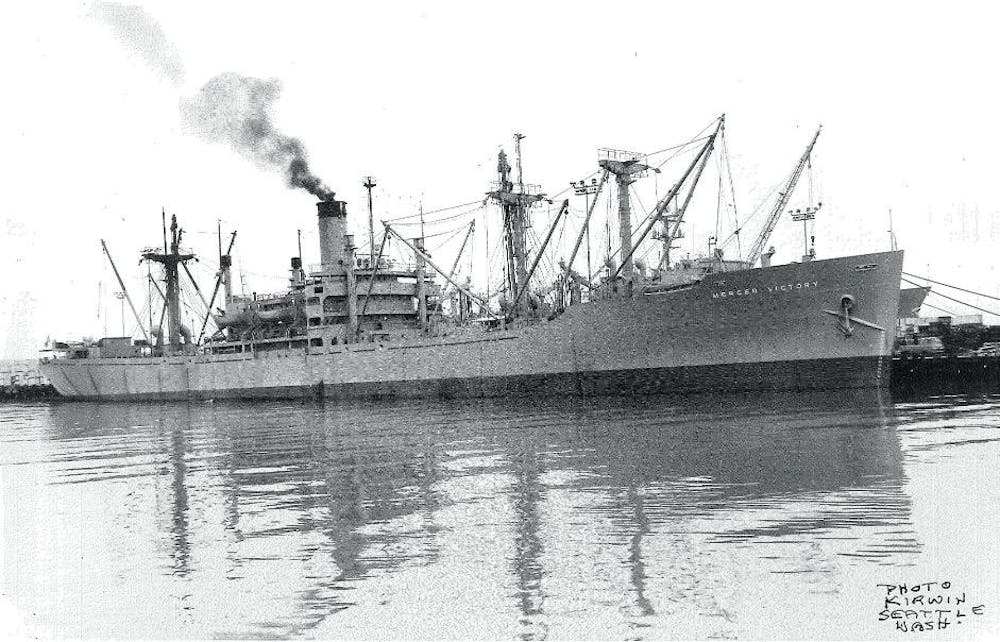
The flag is being raised on the campus of Mercer University.
The USS Mercer Victory was a cargo ship that was awarded the name of Mercer Victory due to Mercer’s war efforts.

